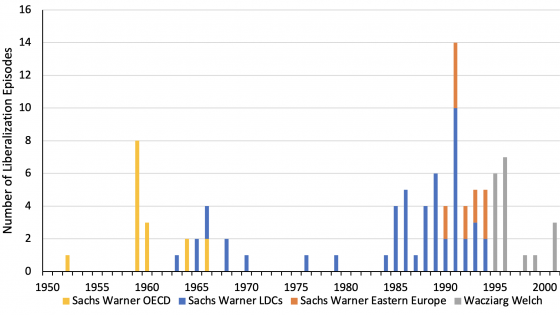DP734 After the Honeymoon: On the Economics and the Politics of Economic Transformation
This paper focuses on the obvious: Pareto-improving programmes may fail to improve everyone's lot. Politically, it has often been interpreted as a requirement that a majority should benefit from the change. Events in Central and Eastern Europe suggest otherwise and cast doubt on the relevance of the median-voter theorem. The addition of minority discontents may result in major political difficulties that lead governments to avoid actions that generate strong minority objections. As a result, the technically best-crafted plans may be rejected for political reasons. In addition, reform programmes which are ex ante politically acceptable may well become rejected ex post after they are implemented. One solution is to introduce a heavy dose of egalitarian income distribution, even if it runs against labour supply incentives.


